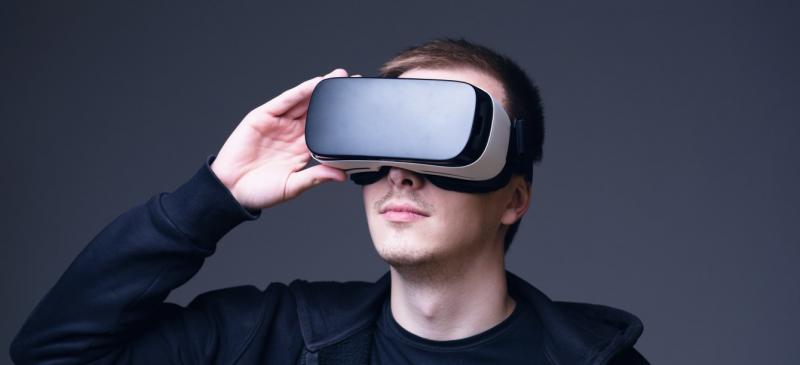
Virtual Reality – The Future of Film?
By Jessica Green
Since the beginning of the 20th century, technology within film has constantly strived to innovate and push the boundaries of the medium. From silent movies to the introduction of colour to the ground-breaking technology of CGI (Computer Generated Imagery), technology has revolutionized the immersive experience of film.
We now face a new wave of technological advancement in the form of Virtual Reality (VR). It is considered to be both a bold step and dangerous commodity by film industry experts, particularly by Steven Spielberg who voiced his concern at Cannes Film Festival 2016, stating that this new technology could incur the loss of aesthetics within a film’s narrative.
However, it is easy to see that this has the potential to be a trailblazer in the evolution of film technology. VR can be used to transport audiences to new worlds, opening up a whole new level of the heightened sensory experience through its implementation of 360 degree view headgear. This theory was tested out by Danish film company ‘Makropol’ at Cannes 2016 with the premier of their short film “Ewa: Out of Body” which allowed audiences to experience the narrative through the eyes of its protagonist.
Many sceptics aren’t convinced that the use of Visual Reality headsets are the future of cinema, claiming that it is only the latest technology to challenge mainstream film-making and won’t make a lasting impact. Yet others believe that VR will completely re-imagine how we experience movies over the next few years, particularly as major studios such as Paramount and Fox are now starting to take it seriously.
It is clear that Virtual Reality will only achieve lasting success if it manages to attract the same calibre of storytellers that cinema does, without ever compromising or seeking to replace the social experience of cinema. However in terms of technological invention, it is undeniably revolutionary – and has the power to create a highly realised space between the audience and the screen, blurring a boundary which has thus far never dared to merge in cinematic history.
Share this article:



















